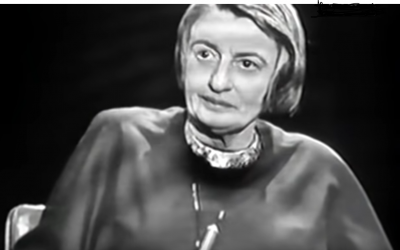“The benevolence of the Fred Rogers philosophy consistently applies and abounds.” — SCOTT HOLLERAN
The year’s second best picture is a new, partly animated movie which offers a radical alternative to most of what’s playing at the movie theater. It’s a documentary about a white male who’s a married, registered Republican father of two boys. While this is not what makes the film radical, having as the subject of a modern documentary by a white male another white male is unusual in today’s heavily pre-judged Me, Too movie market. What sets Won’t You Be My Neighbor? above the rest is the superiority of its selected topic, theme and execution.
Though it’s imperfect, and it would’ve been better with a basic biographical-philosophical basis, Won’t You Be My Neighbor? by filmmaker Morgan Neville quickly establishes itself as the anti-Marvel movie. This is terrific non-fiction about the times in which we live, as against a fantastical reprieve or escape from modern problems.
Demonstrating up front that it’s a movie for the one who chooses to think, Won’t You Be My Neighbor? begins with Fred Rogers, host of the long-running PBS series Mister Rogers’ Neighborhood, in black and white footage. Rogers is playing piano while offering the thought that understanding modulation is crucial to child development.
Rogers explains that there are different themes in life. The year is 1967; the dawn of the New Left’s acceleration, especially in terms of dominating primary education. Revealing himself to the camera as he would for years to come, Fred Rogers of Pittsburgh, Pennsylvania, uses music as a springboard to advancing the child’s education. The slender, soft spoken Rogers pauses in a moment of self-awareness, pondering that his approach might be considered “too philosophical”.
If Neville’s movie had maintained that level of exploration, this would’ve been as marvelous a movie as its already exceptional reputation. As it is, Won’t You Be My Neighbor? stands out for its mindful approach to raising a rational child. It strikes the audience as intellectual because it is not as bland, blank and moronic as most of today’s cultural output, including the smut those praising the film may consume.
Most of those applauding the movie at a recent ArcLight Hollywood screening may not realize that, besides countering the anti-intellectualism of the Trump base, Fred Rogers as a thinker, teacher and television host also and just as centrally counters the anti-intellectualism of the Obama base. This may be less apparent because Neville selects clips, episodes and aspects that deal with the current shade of looming totalitarianism, beginning with puppet King Friday the 13th’s building of a wall. The benevolence of the Fred Rogers philosophy consistently applies and abounds.
Neville, who previously made a documentary about Yo-Yo Ma (who appears here as a former guest on the Rogers program) and others, senses that today’s polarized audiences might be inclined to marginalize Fred Rogers and his warm, soft, intelligent way of reaching and developing the child. So, he shows the skeptical faces of backstage adults as they watch an early incarnation of the Fred Rogers television show.
The show, created, produced and hosted by Rogers with a “singular vision of kindness and love” is sufficiently sampled. Western Pennsylvanian Rogers, who’d once sought to become a Presbyterian minister, made the show with an aim to foster a childlike world in which the viewer feels safe, secure and easily at play while acquiring new knowledge. He made this as a rejection of what he saw on children’s TV.
Animated sporadically in muted colors with a lone animal Rogers created as an alter ego, hand puppet Daniel Tiger, clips demonstrate that the mindlessness of American culture was spreading far, wide and fast in the 1950s through the late 1960s. People throwing pies at one another on TV passed as proper programming for children.
Won’t You Be My Neighbor? fails to explicitly identify and define, let alone chart and contrast, his philosophy. But its strongest evidence is you, the audience, and your presupposed awareness of the full frontal assault on your reasoning mind. Won’t You Be My Neighbor? sets you up to become conscious of the dumbing down, if only by implication. You know that what you are fed, streamed and autoplayed, even what you may choose to watch, gets dimmer and you have the president to prove it. Won’t You Be My Neighbor? relies on your knowledge of the fact that the programming Fred Rogers opposed and counterprogrammed against has long since prevailed.
This is the underlying conflict of the picture, which proceeds as if you know that you, too, probably lack, need and are deficient in love, kindness and guidance. The subtext is that the mad cult of Game of Thrones, Marvel, hip hop, the force and Obama-or-Trump is poison and that Fred Rogers forecast and fought it with a radical solution.
As one interviewed guest puts it, his “inner child never went away”. Rogers, influenced by psychologist Margaret McFarland and part of the University of Pittsburgh’s child-focused intellectual set, which included toxic thinkers such as Spock and Erikson, sought to establish for the child a benevolent orientation to reality.
Again, this is not how Neville formulates the idea but this is what he shows that Fred Rogers did, aiming to make the confused world comprehensible to the child, whether addressing an assassination or a divorce. The registered Republican, who, like Dick Clark, held that he was speaking to the individual when addressing himself to the camera, insisted upon treating the child as a whole human being inherently deserving to be taken seriously in emotion, body and mind.
In clips, segments and narratives over the film’s 90 minutes, which is too short a running time, if probably too long for the culture of dim, the late Fred Rogers, backed and remembered by his wife, sons, colleagues and associates, has many brilliant and touching moments to bolster his views against the dominant downward trend.
With a boy who tells Rogers about the time his cat died, Rogers is comforting, consoling and mirroring, not condescending and certainly not minimizing. Who in today’s anti-boy culture encourages a boy both to feel good to be alive and to express himself? Shrill forces in today’s anti-male culture persecute boys for being boys, even as they demand that boys behave as brutes, ballers and automatons, and then wonder why boys burst, pop and act out. To an American senator in a position of power over government-funded Public Broadcasting Service funding, Rogers pledges that he seeks to demonstrate to the child that “feelings are mentionable and manageable.” Imagine.
Other lessons are less abstract. In one display, Fred Rogers demonstrates the simple art of breathing, which the world could use right now. None of his method gets an in-depth examination from Neville, who declines to study in detail the origins of the elaborate worlds and routines of Mister Rogers’ Neighborhood, whether considering the impetus for its puppets, dioramas or lessons. A segment on children’s breach with reality over the depiction of superheroes is especially relevant. So is a bit on his choice to perform a musical duet to demonstrate that one should strive to live with, rather than seek to eradicate or succumb to, self-doubt.
Exercising choice and the underlying premise that, as Ayn Rand wrote, man is a being of volitional consciousness (in other words, he must choose to think), are at the root of this outstanding if somewhat superficial documentary. The film’s invitational title underscores this premise. It doesn’t get everything right, especially on what a spokesman for the Fred Rogers Center describes as the fundamentals of Christianity.
Won’t You Be My Neighbor? also doesn’t sugarcoat the truth (which apparently was a Mrs. Rogers precondition). For example, when Rogers found out that the actor who played the neighborhood policeman was openly gay, he demanded secrecy and repression as a condition of employment, which contradicts his philosophy. Won’t You Be My Neighbor? shows, too, that Rogers became depressed later in life.
Wouldn’t anyone? Apparently, Fred Rogers, who’d started his program seeking to show the West’s children that they are endowed with the capacity for good, found it difficult to find the good after the Islamic terrorist attack on September 11, 2001 (though, again, this is not explicit in the movie). But, whether demonstrating love and kindness with Tomorrow host Tom Snyder, a nation’s confused children or a single, handicapped child, the man who saw his primary audience as the individual child managed to create and host a program on “being a man” and “making goodness attractive.”
“So much to think about,” Fred Rogers says in a clip at one point in Won’t You Be My Neighbor? Let dolts such as Brian Kilmeade on the president’s favorite Fox & Friends mistake Fred Rogers’ benevolent, child-centered philosophy for a rationalization for egalitarianism (it isn’t).
Though Won’t You Be My Neighbor? lacks some detail and breakdown, Morgan Neville’s movie about a radical who held that dying well meant ending life with innocence intact finds and, shifting audience perspective toward the end, feeds the good. If you hear the trolley (and, if you pause, listen and learn, you will), you’ll be able to play along, accept and gain from Mr. Rogers’ invitation.


